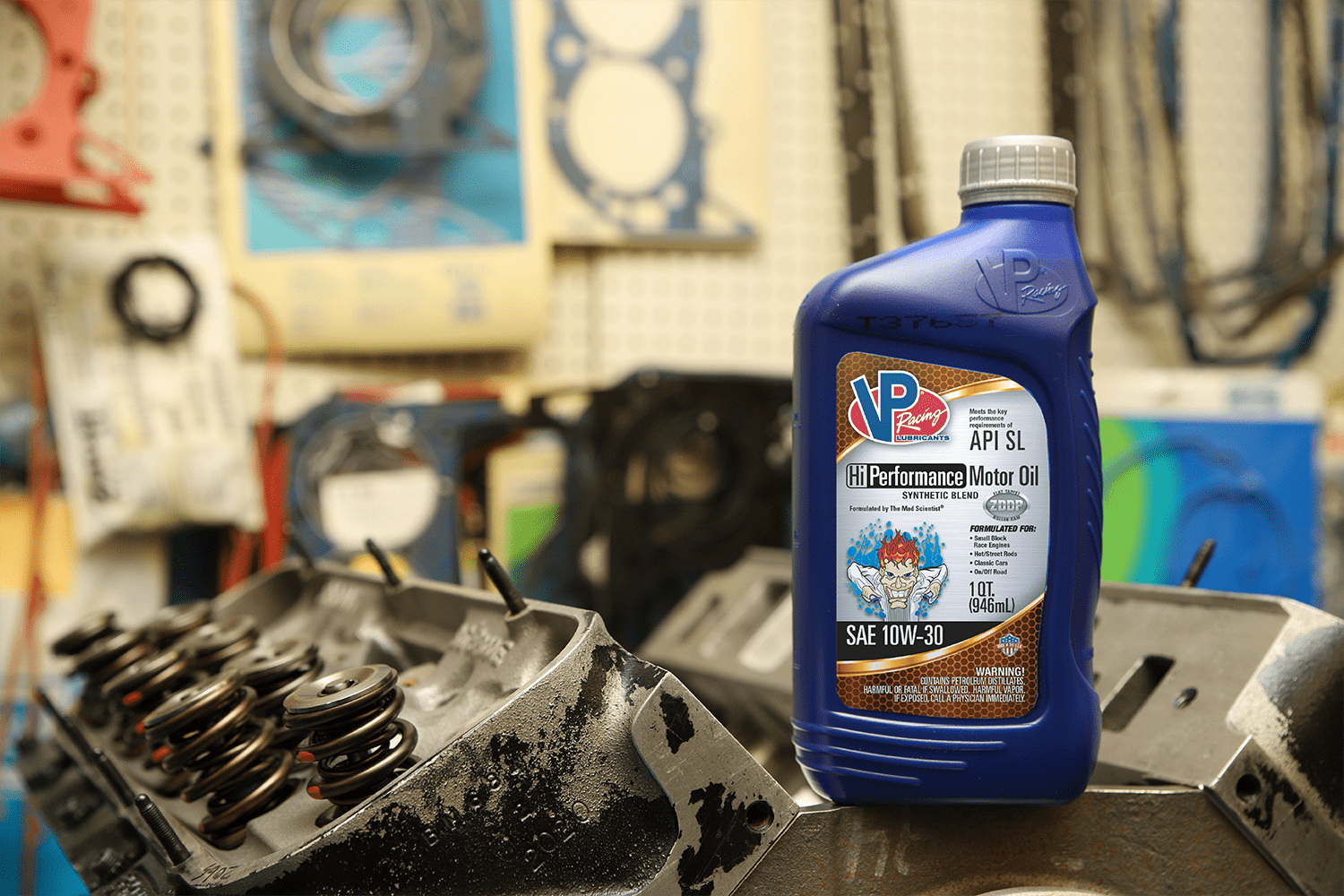What Is Oil Viscosity? Oil Viscosity Explained
Estimated reading time 6:00
Most people know that motor oil is vital for an engine’s performance and longevity. But what is oil viscosity? What does oil viscosity mean, and what do those numbers on a bottle of oil mean? This article will answer those questions and more.
The simplest explanation is viscosity measures the resistance of the oil to flow, or how easy oil pours at different temperatures. It’s a range of the thickness or thinness of oil at a certain temperature range. It’s actually the most important physical property of motor oil.
We need oil viscosity to form the lubrication film between metal parts within the engine. It has to be thick enough to form a film keeping engine parts separated but low enough so that it doesn’t cause excessive energy loss.
The viscosity of oil varies with temperature changes. A thin oil has a lower viscosity and pours easier in cold weather, while a thicker oil has a higher viscosity and pours slower.
For instance, a low-viscosity oil such as an SAE 0W or 5W reduces engine friction and allows engines to start quicker when the weather is cold. A higher viscosity oil like an SAE 40 or 50 does a good job of maintaining film strength at warmer temperatures.
To illustrate, pour out a cup of coffee in the sink. What happens? It flows out of the cup, right? Try doing the same thing with a bottle of shampoo. Shampoo pours slower out of the bottle because it’s more viscous than coffee; it has a higher viscosity.
Olive oil is another example. At room temperature, it pours fast. It thickens and pours slower if you stick it in the refrigerator for a few hours. That brings us to the viscosity index (VI).
Viscosity Index
The viscosity index measures how viscosity changes relative to changes in temperature. Temperature affects viscosity. Remember our olive oil example? In other words, VI measures both the ability of an oil to resist becoming thinner at a higher temperature and thicker at a lower temperature.
How do they determine engine oil viscosity index? They measure its viscosity across a wide range of temperatures. The higher the VI number, the less change in oil viscosity in relationship to temperature.
Motor oil with a high VI protects the engine better. A full synthetic oil generally has a higher viscosity index than conventional motor oil.
What’s the most ideal motor oil? It’s one where the oil’s viscosity would never change at any temperature range.
What Does the W Stand for In Oil?
Exactly what does the W stand for in oil? Have you ever looked at a bottle of SAE 10W-40 or any other multi-grade engine oil and wondered about that? Contrary to what many people believe, the “W” does not stand for “weight” but “winter.”
Several decades ago, they made engine oils for cold weather and warm weather. They called these winter grades and summer grades. They were straight-grade oils. An SAE 10W grade was pretty common for the winter months (low viscosity oil), while an SAE 30W grade was most commonly used during the summer months (higher oil viscosity).
Later, they started formulating multi-grade oils like SAE 10W-30, 5W-30, 20W-50, and so on. When you read the viscosity grade on a quart of oil, the number to the left (before the “W”) is its winter rating. It represents oil viscosity measured at lower temperatures. The lower that number, the less the oil will thicken in cold winter weather.
The higher number to the right of the “W” represents oil viscosity at operating temperatures. Higher numbers reflect thicker oil viscosity. This gives the engine better protection for high-heat and high-load applications.
They test oil at a lower temperature to determine the first number (SAE 0W, 5W, 10W, etc.). They test it at a higher temperature to determine the second number (SAE 30, 40, 50, etc.).
For instance, SAE 5W-30 oil flows better at colder temperatures than 10W-40 oil. But, SAE 10W-40 oil is thicker. It provides better protection in warmer weather compared to SAE 5W-30.
Multi-viscosity engine oils don’t behave the same. It depends on the operating temperature. A multi-viscosity oil provides good flow in cold weather and dependable protection at operating temperatures in warm weather.
High (Thicker) Oil Viscosity
Is a higher (thicker) oil viscosity better for your engine if you live in a warm climate? You might think a thicker oil would offer better protection. Well, yes, and no.
An oil’s viscosity is critical. It keeps metal parts separated within the engine. The proper viscosity grade does that. But, you don’t want an oil that’s too thick because it creates too much frictional drag within the oil itself. This creates extra heat. The added heat causes the oil to thicken (oxidation). It can also rob engine performance by reducing horsepower.
Types of Motor Oil: What Motor Oil Should I Use?
As we’ve noted, there are many types of motor oil with various oil viscosities, like VP’s line of engine oils. So, what kind of motor oil should you use? The answer depends on a few things. For our subject, we’ll stick with grades of oil. In a different article, we discuss the differences between synthetic, semi-synthetic, and conventional engine oil.
The grade of oil you should use depends on engine clearances, operating conditions, and the climate. Where do you live? If you live in a cold environment, use something like an SAE 0W-20, 5W-20, or 5W-30. These are examples of lower oil viscosity.
What if you live in a place like Phoenix, Arizona? In a warm climate, you want an oil that offers more high-temperature protection. In that case, an SAE 10W-30, 10W-40, 15W-50, or 20W-50 would be more suitable. These four are examples of higher oil viscosity.
Because of government fuel economy requirements, newer cars call for lower-viscosity oil. Also, they now build car and truck engines with tighter clearances. These newer engines don’t need a higher oil viscosity like an SAE 10W-40 or 20W-50.
If you have an engine with a tighter clearance and use an oil with a higher viscosity range, the oil will cause frictional drag. That’s why it’s essential to follow the OEM recommendations.
Can You Mix Motor Oil Brands & Oil Viscosities?
In most circumstances, you can mix different viscosity oils. For example, let’s say you’re using VP Street Legal SAE 5W-20, but you only have Street Legal SAE 10W-30 sitting on your shelf. It wouldn’t hurt your engine if you mixed these different viscosity oils. It would have a slight effect on the viscosity, but in this case those oils have the same additive systems.
If you’re thinking of mixing different motor oil brands or viscosities, check the label. Make sure the oils are miscible (able to mix) with each other.
Refer to your owner’s manual when in doubt. It will have a viscosity chart that’s based on ambient temperatures. The chart specifies the ranges that you should follow.
Be sure to check out part two of our motor oil series, “Synthetic vs. Conventional Oil: What’s the Difference?
Additionally, our friends at EngineLabs have a great Q&A segment covering a wide array of topics, including oil viscosity.


